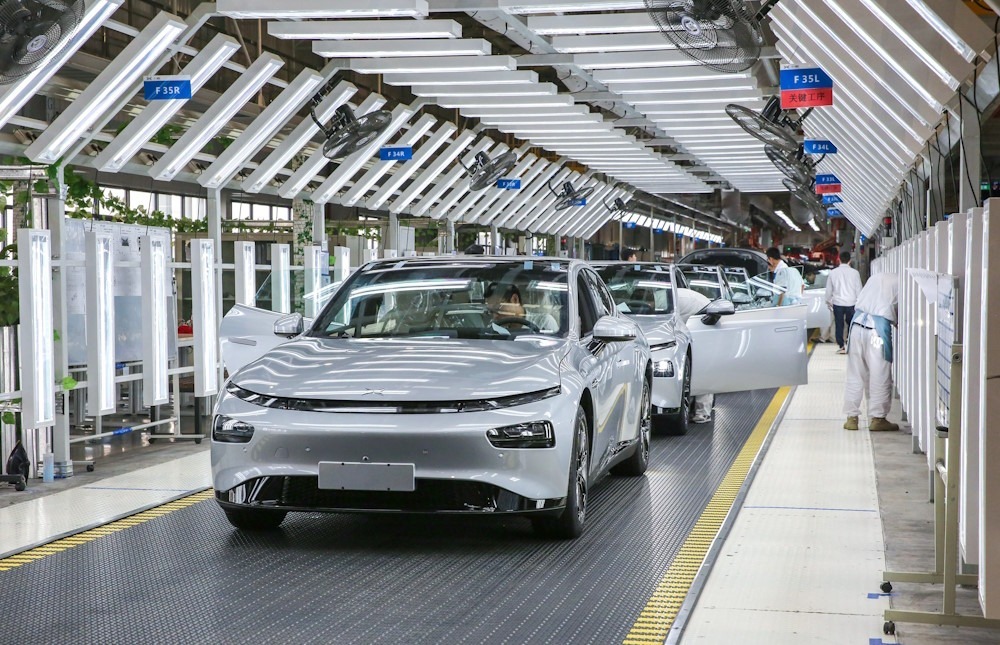Cheaper EVs from China

More affordable electric vehicles (EVs) are originating from China. Investors are enthusiastic about the imminent release of more cost-effective Teslas. However, it is quite likely that more affordable electric automobiles from China will also be introduced.
Despite the significant surplus in production capacity, the leading Chinese automobile manufacturers still possess substantial financial reserves. Furthermore, the gross margins of BYD, the leading company in China’s market, had an increase in the previous year. Consequently, the ongoing worldwide competition over electric vehicle prices will persist and perhaps intensify.
Elon Musk, the CEO of Tesla, announced last week that the company is expediting the release of more cost-effective models, surpassing the initial timeline set for late 2025. Despite Tesla’s unfavorable first-quarter numbers, which included declining deliveries, shrinking margins, and a significant drop in earnings, the company’s stock experienced a remarkable 14% increase last week. Tesla’s stock has experienced a decline of 32% in value since the beginning of this year.
Undoubtedly, there is a pressing demand for a more recent and more affordable Tesla model, as Chinese electric vehicle manufacturers are rapidly producing superior and more cost-effective vehicles. The relentless pricing competition that has persisted for over a year in that location exhibits no indications of deceleration. In February, BYD intensified the battle by offering its plug-in hybrids at a price of approximately $11,000, which is lower than the cost of identical gasoline-powered vehicles. Tesla responded to the situation by implementing a substantial reduction of almost $2,000 in the prices of its vehicles in China for the current month. The starting price of the Model 3 is approximately $32,000 there.
China, being the largest market for electric vehicles (EVs) globally, holds significant importance for Tesla and other automobile manufacturers. However, it is worth noting that China is now also actively involved in exporting its own cars. Approximately 50% of the automobiles that were sold in China during the initial three weeks of April were classified as new-energy vehicles, encompassing plug-in hybrids, as reported by the China Passenger Car Association.
In addition, the decrease in prices last year was partially balanced out by the significant decline in the pricing of essential raw materials like lithium and nickel. Further reductions in spending this year could have a more severe impact due to the increased stability of commodities prices.
However, it is probable that the pricing war will continue for an extended period of time. According to Goldman Sachs, BYD earns approximately 8,100 yuan, which is equivalent to $1,118, for each car it produces. In comparison, the entire electric vehicle (EV) industry in China earns 2,600 yuan each car. Therefore, BYD has the capacity to reduce prices by 7% and still maintain profitability.
In addition, more cost reductions and improved economies of scale may provide the organization with even greater flexibility. BYD is a vertically integrated company, meaning that it produces its own batteries and processors. This enables the company to find various ways to reduce expenses. BYD effectively increased its gross margin to 20% in the previous year, up from 17% the year before.
Additionally, a significant portion of the remaining sector will have the capacity to withstand the hardship for an extended period. Smaller local companies frequently lack profitability or rely on government assistance, whereas the largest national brands tend to have a more favorable situation. According to Goldman Sachs, the 13 leading Chinese vehicle manufacturers, accounting for 69% of the overall passenger-car industry, possessed a net cash amount of 315 billion yuan at the conclusion of 2023. Additionally, a portion of those entities are held by the state.
Several Chinese electric vehicle manufacturers will focus on exporting their products, which may be sold at higher prices, in order to alleviate the challenges faced in the domestic market. This strategy is particularly important given the rapid increase in production capacity in recent years. The utilization rates for automobile manufacturing dropped to less than 65% in the first quarter, a decrease from the previous quarter’s rate of 76%.
More affordable electric vehicles (EVs) are advantageous for consumers and the shift towards environmental sustainability. However, this is distressing news for the majority of Western vehicle manufacturers, particularly those that are falling behind.









